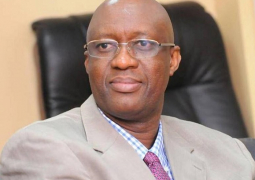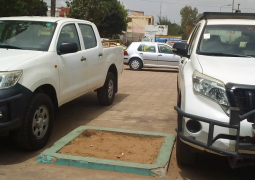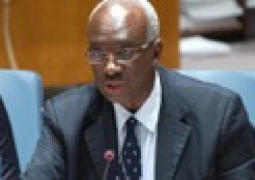
The president was speaking yesterday at the inauguration ceremony of police stations in Serrekunda, Bundung, Bakoteh and Brusubi Child Welfare
Barrow reiterated his commitment to the Security Sector Reform goals and targets, saying ‘the establishment of standard training facilities for the Police and other sector institutions remains a matter of concern and priority for us.’
Dwelling on the importance of the new structures, President Barrow explained that no security sector can deliver effective services in the absence of the infrastructure required for its day-to-day operations.
“The three newly reconstructed model police stations and Police Child Welfare Office do not only conform with international human rights standards but have been modelled also to create an ideal working environment for our officers to perform better. Without doubt, these milestone projects will add fresh impetus to the national SSR accomplishments my government is committed to achieving,” he said.
He further acknowledged that security is an indispensable aspect of national development, adding that due recognition of the important link between security and national development provides a strong basis for the reforms undertaken in the Security Sector.
“The reforms aim to address the legacies of the past that continue to stain the reputation of the sector. Our goal is to enhance the capability of the sector to efficiently respond to the security needs of the country and beyond,” the president said.
He highlighted that it is certain that significant achievements have been made, which include making the sector accountable to civilian authority, establishing policy frameworks and procedures, and ensuring compliance with human rights standards and the rule of law.
“I must observe, however, that reforming the Security Sector is neither easy nor straightforward. It is a long process requiring, among other things, huge capital investments to adequately address the relevant logistical, operational, and infrastructural challenges. The process also calls for gradual re-orientation of the sector personnel through continuous training and re-training.”





